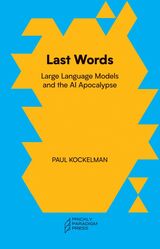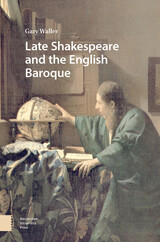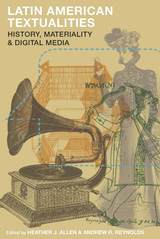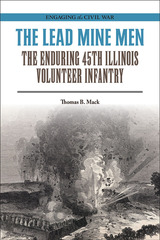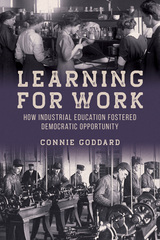10 start with M start with M

Developing a new political thought to address today’s planetary crises
What is “planetary thinking” today? Arguing that a new approach is urgently needed, Yuk Hui develops a future-oriented mode of political thought that encompasses the unprecedented global challenges we are confronting: the rise of artificial intelligence, the ecological crisis, and intensifying geopolitical conflicts.
Machine and Sovereignty starts with three premises. The first affirms the necessity of developing a new language of coexistence that surpasses the limits of nation-states and their variations; the second recognizes that political forms, including the polis, empire, and the state, are technological phenomena, which Lewis Mumford terms “megamachines.” The third suggests that a particular political form is legitimated and rationalized by a corresponding political epistemology. The planetary thinking that this book sketches departs from the opposition between mechanism and organism, which characterized modern thought, to understand the epistemological foundations of Hegel’s political state and Schmitt’s Großraum and their particular ways of conceiving the question of sovereignty. Through this reconstruction, Hui exposes the limits of the state and reflects on a new theoretical matrix based on the interrelated concepts of biodiversity, noodiversity, and technodiversity.
Arguing that we are facing the limit of modernity, of the eschatological view of history, of globalization, and of the human, Hui conceives necessary new epistemological and technological frameworks for understanding and rising to the crises of our present and our future.
Retail e-book files for this title are screen-reader friendly.

The Making of China’s Post Office traces the origins and early development of the country’s modern postal system. Sweeping in perspective, it goes beyond the bounds of institutional history to explore the political maneuverings, economic imperatives, and societal pressures both inhibiting and driving forward postal development. Although its prime mover was Robert Hart, Inspector General of the Chinese Maritime Customs Service, the wider cast of characters includes foreign and native staff, Qing officials, local administrations, commercial interests, and foreign governments.
Drawing extensively on archival material from the Second Historical Archives of China in Nanjing, the Tianjin Municipal Archives, and the Archive of Queen’s University Belfast, Weipin Tsai contextualizes the making of the post office within the country’s long and contested path of modernization, bringing Chinese voices to the fore. Tsai illustrates the extent to which local agency shaped the design and development of the service as it expanded from experimental coastal operation into China’s interior and on to its border periphery, the first nationwide modernization project to directly impact people’s daily lives. Ultimately, the grand spatial reach of the Post Office carried significant symbolic meaning in relation to sovereignty for the Qing government and for later Republican administrations.
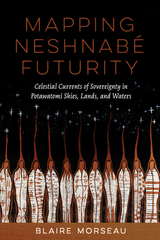
In Mapping Neshnabé Futurity Blaire Morseau weaves together on-the-ground insights and Indigenous speculative fiction to illustrate the profound ways in which Anishinaabé/Neshnabé (Potawatomi, Odawa, and Ojibwe) communities are reclaiming their sovereignty and crafting vibrant futures. Morseau lays out how Neshnabék have marshaled dissent to hydrologic fracturing, oil pipelines, and other damaging infrastructures of capitalist settler futurity. The book positions these efforts as vital acts of nation building and visionary reclamation of space, both terrestrial and celestial.
Morseau also challenges the hegemonic narratives of settler futurism found in mainstream science fiction, which often perpetuate colonial fantasies and exclude marginalized voices. By fusing ethnography of tribal nation-building projects and analysis of Indigenous speculative fiction, Morseau provides a path to Indigenous futurisms and its role in imagining decolonization. Morseau’s analysis underscores the potency of Indigenous knowledge systems and ceremonial practices in imagining and actualizing alternative futures.
Mapping Neshnabé Futurity is an essential read for scholars and activists alike, urging a rethinking of how we conceive of futurity and sovereignty. This work shows how counter-mapping projects both on the ground and in the skies reclaim space in the Great Lakes region—Neshnabé homelands—and are part of larger constellations of Indigenous futurities and stories of survivance.
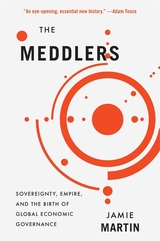
“The Meddlers is an eye-opening, essential new history that places our international financial institutions in the transition from a world defined by empire to one of nation states enmeshed in the world economy.”
—Adam Tooze, Columbia University
An award-winning history traces the origins of global economic governance—and the political conflicts it generates—to the aftermath of World War I.
International economic institutions like the International Monetary Fund and World Bank exert incredible influence over the domestic policies of many states. These institutions date from the end of World War II and amassed power during the neoliberal era of the late twentieth century. But as Jamie Martin shows, if we want to understand their deeper origins and the ideas and dynamics that shaped their controversial powers, we must turn back to the explosive political struggles that attended the birth of global economic governance in the early twentieth century.
The Meddlers tells the story of the first international institutions to govern the world economy, including the League of Nations and Bank for International Settlements, created after World War I. These institutions endowed civil servants, bankers, and colonial authorities from Europe and the United States with extraordinary powers: to enforce austerity, coordinate the policies of independent central banks, oversee development programs, and regulate commodity prices. In a highly unequal world, they faced a new political challenge: was it possible to reach into sovereign states and empires to intervene in domestic economic policies without generating a backlash?
Martin follows the intense political conflicts provoked by the earliest international efforts to govern capitalism—from Weimar Germany to the Balkans, Nationalist China to colonial Malaya, and the Chilean desert to Wall Street. The Meddlers shows how the fraught problems of sovereignty and democracy posed by institutions like the IMF are not unique to late twentieth-century globalization, but instead first emerged during an earlier period of imperial competition, world war, and economic crisis.

“Martin’s impressive new book, The Meddlers, considers the League of Nations and other interwar precursors of ‘neutral’ institutions of doux commerce to show how closely the ‘birth of global economic governance’ was entangled with empire.” —David Priestland, London Review of Books
“Few standard accounts of international economic history hold up to scrutiny in Jamie Martin’s bold history of economic governance.” —Dina Gusejnova, Times Literary Supplement
“The Meddlers is an eye-opening, essential new history that places our international financial institutions in the transition from a world defined by empire to one of nation states enmeshed in the world economy.”
—Adam Tooze, Columbia University
Institutions like the International Monetary Fund and World Bank exert excessive influence over the domestic policies of many states. While they were created in the aftermath of World War II, if we want to understand their deeper origins and the ideas and dynamics that shaped their controversial powers, we must turn back to the explosive political struggles that attended the birth of global economic governance in the early twentieth century.
The Meddlers tells the story of the first international institutions to preside over the world economy, including the League of Nations and Bank for International Settlements, created after World War I. These institutions endowed European and American bankers, colonial authorities, and civil servants with extraordinary powers: to enforce austerity, coordinate the policies of independent central banks, oversee development programs, and regulate commodity prices. Martin shows how the challenges that institutions like the IMF pose to democracy today first emerged during a period of imperial competition and war at the beginning of the twentieth century.
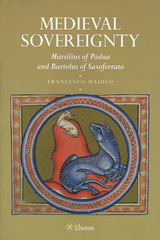
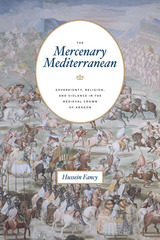
They were not the first or only Muslim soldiers to do so. Over the course of the thirteenth and fourteenth centuries, the Christian kings of Aragon recruited thousands of foreign Muslim soldiers to serve in their armies and as members of their royal courts. Based on extensive research in Arabic, Latin, and Romance sources, The Mercenary Mediterranean explores this little-known and misunderstood history. Far from marking the triumph of toleration, Hussein Fancy argues, the alliance of Christian kings and Muslim soldiers depended on and reproduced ideas of religious difference. Their shared history represents a unique opportunity to reconsider the relation of medieval religion to politics, and to demonstrate how modern assumptions about this relationship have impeded our understanding of both past and present.
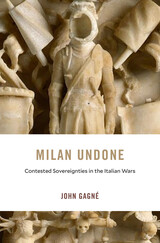
A new history of how one of the Renaissance’s preeminent cities lost its independence in the Italian Wars.
In 1499, the duchy of Milan had known independence for one hundred years. But the turn of the sixteenth century saw the city battered by the Italian Wars. As the major powers of Europe battled for supremacy, Milan, viewed by contemporaries as the “key to Italy,” found itself wracked by a tug-of-war between French claimants and its ruling Sforza family. In just thirty years, the city endured nine changes of government before falling under three centuries of Habsburg dominion.
John Gagné offers a new history of Milan’s demise as a sovereign state. His focus is not on the successive wars themselves but on the social disruption that resulted. Amid the political whiplash, the structures of not only government but also daily life broke down. The very meanings of time, space, and dynasty—and their importance to political authority—were rewritten. While the feudal relationships that formed the basis of property rights and the rule of law were shattered, refugees spread across the region. Exiles plotted to claw back what they had lost.
Milan Undone is a rich and detailed story of harrowing events, but it is more than that. Gagné asks us to rethink the political legacy of the Renaissance: the cradle of the modern nation-state was also the deathbed of one of its most sophisticated precursors. In its wake came a kind of reversion—not self-rule but chaos and empire.

Georges Dumézil’s fascination with the myths and histories of India, Rome, Scandinavia, and the Celts yielded an idea that became his most influential scholarly legacy: the tripartite hypothesis, which divides Indo-European societal functions into three classes: the sacred sovereign, the warrior, and the producer. Mitra-Varuna, originally published in 1940, concentrates on the first function, that of sovereignty. Dumézil identifies two types of rulers, the first judicial and worldly, the second divine and supernatural. These figures, both priestly, are oppositional but complementary. The title nods to these roles, referring to the gods Mitra, a rational mediator, and Varuna, an awesome religious figure.
Stuart Elden’s critical edition, based on the 1988 English translation by Derek Coltman, identifies variations between the first and second French editions and completes—and in places corrects—Dumézil’s references. The editor’s detailed introduction situates Mitra-Varuna within Dumézil’s career, outlines how his treatment of its themes developed over time, and relates the book to the political controversy around his ideas. Two new appendices contain passages that did not appear in the second French edition.

READERS
Browse our collection.
PUBLISHERS
See BiblioVault's publisher services.
STUDENT SERVICES
Files for college accessibility offices.
UChicago Accessibility Resources
home | accessibility | search | about | contact us
BiblioVault ® 2001 - 2024
The University of Chicago Press


